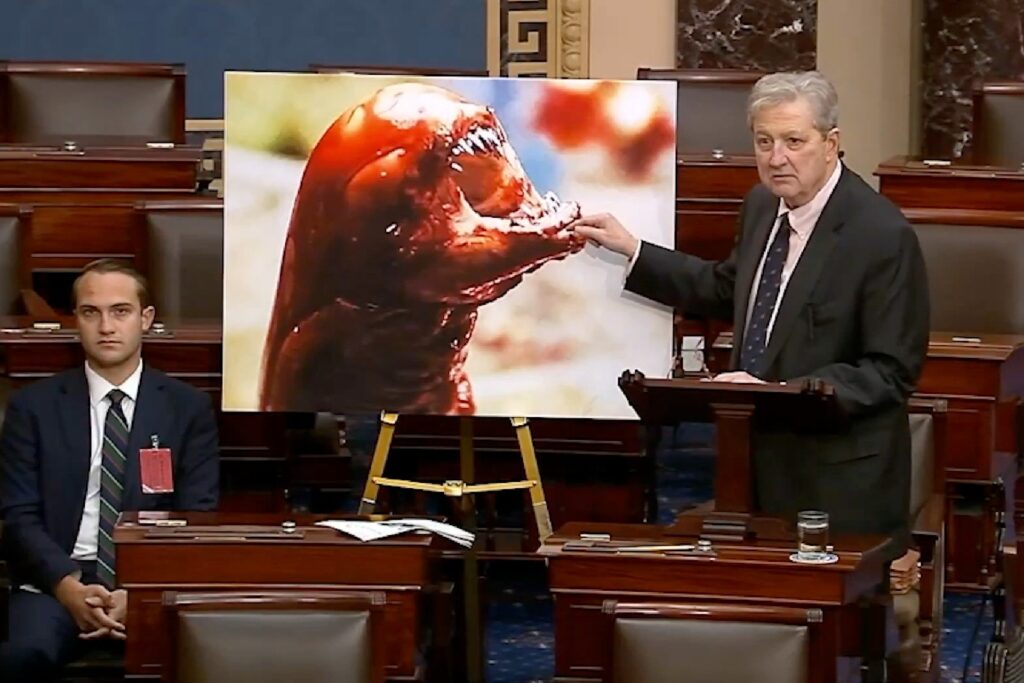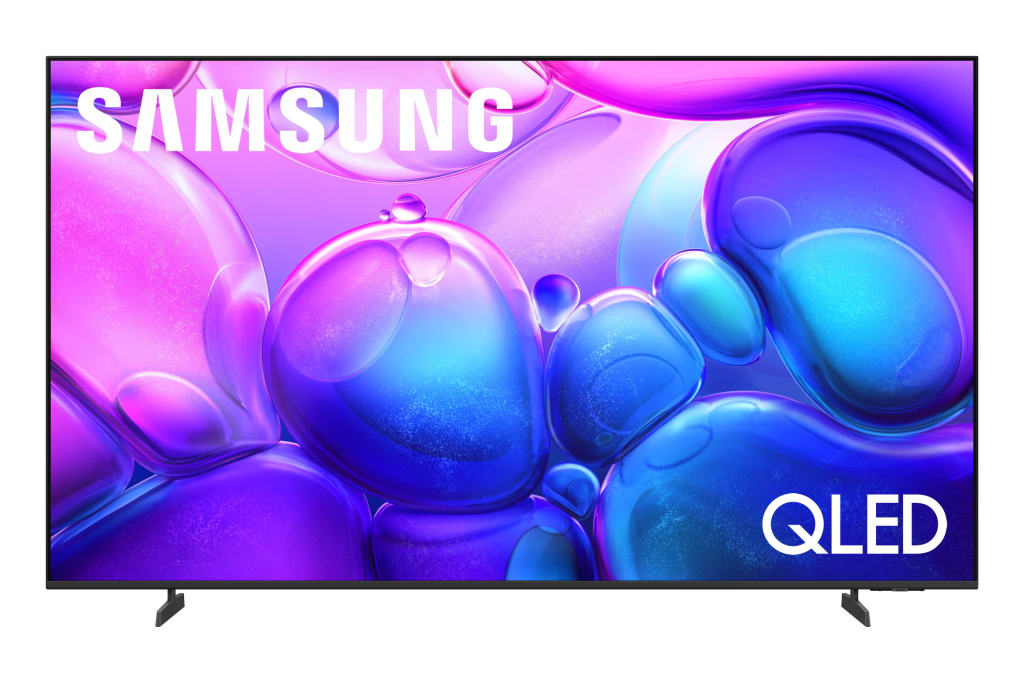
Concerns over radioactive shrimp have escalated in the United States, prompting recalls of several brands believed to contain harmful materials. Senator John Kennedy, a Republican from Louisiana, recently took to the Senate floor to raise alarm about the potential dangers, using an unconventional approach by referencing the 1979 horror film, *Alien*.
On March 6, 2024, Kennedy presented a large poster featuring a screenshot of the film’s infamous chestburster scene, cautioning that eating contaminated shrimp could lead to dire health consequences. “This is what you could end up looking like if you eat some of the raw frozen shrimp being sent to the United States by other countries,” he stated, underscoring the seriousness of his claims.
The senator’s comments came in light of recent discoveries made by U.S. Customs and Border Protection, which detected cesium-137, a radioactive isotope, in shrimp imported from BMS Foods of Indonesia. The detected level was 68 Bq/kg, significantly below the federal intervention threshold of 1,200 Bq/kg. The American Nuclear Society indicated that this level of radiation is comparable to that found in bananas, emphasizing that while no one desires radioactive substances in their food, the risks are exaggerated in Kennedy’s warnings.
Kennedy continued his address by listing brands sold at major retailers like Walmart that were part of the recall, further amplifying his alarming message. He stated, “If you eat it, how could you end up looking like the alien in *Alien*? Because the shrimp was radioactive. I kid you not.” Additionally, he claimed that consuming these shrimp could result in unexpected side effects, such as growing an extra ear, a statement lacking scientific backing.
While the senator’s remarks caught media attention, experts clarified that the radiation levels detected do not pose immediate health risks. The Food and Drug Administration has noted that concerns surrounding the recalled shrimp involve long-term exposure to low doses, which could potentially contribute to cancer over time, rather than the dramatic outcomes suggested by Kennedy.
Kennedy, representing the largest shrimp-producing state in the U.S., has a vested interest in promoting domestic shrimp over imports. He did not shy away from highlighting the negative implications of foreign shrimp production, stating, “This shrimp is grown in conditions that you can’t possibly imagine. Dirty water. They shoot the shrimp full of antibiotics.”
However, there is no evidence supporting the notion that shrimp producers intentionally contaminate their products with radioactive materials. The likely scenario involves accidental contamination from industrial processes. Kennedy acknowledged his bias, stating, “I believe in homegrown Louisiana shrimp. Fresh, out of the Gulf, not radioactive.”
He continued to criticize the practices of foreign shrimp producers, calling for the National Oceanic and Atmospheric Administration (NOAA) to enhance inspections of imported shrimp, emphasizing that foreign suppliers may not adhere to the same safety standards enforced in the U.S.
While Kennedy’s dramatizations may serve to draw attention to the issue, they have also stirred confusion regarding the actual risks associated with the contaminated shrimp. As the situation develops, it remains crucial for consumers to stay informed and rely on official sources for accurate information regarding food safety.







